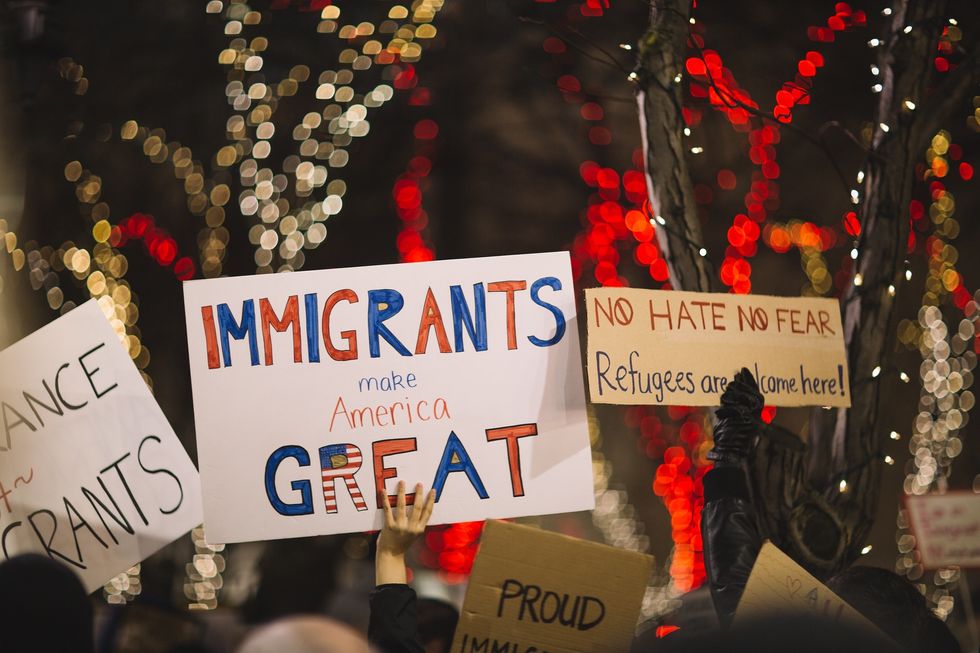Anxiety was the only thing filling his stomach as he said goodbye to his extended family and gave his grandmother another hug. The January air in El Salvador was stale, hot and hard to breathe in. He looked around at his home, open and small. He saw his parents' farm and all their belongings. He smelled his grandmother's bread baking in their outdoor oven one last time.
“I still remember it like it was yesterday,” he told me as he stared off at nothing. I could tell that these vivid images were presenting themselves in the room. Felipe Martinez was 10-years-old when his parents told him they were moving to the United States. Now 23, he lives in New York.
Traditions of El Salvador are very different than in the United States. “I was bottle fed coffee,” he told me with a disappointing look on his face. One of the leading exports and main fuel for the Salvadoran economy comes from their production of coffee. Drinking it from a young age is very common. Now, he understands that the effects of caffeine on a child can potentially be dangerous. “I can at least prove it doesn’t stunt your growth,” he joked, standing at 6 feet 3 inches.
In El Salvador, schooling is not required and it is nearly impossible to receive a higher education. “My brother and I are the only ones in our family with an education higher than the 6th grade,” he said.This is mainly because secondary education is not taught in smaller villages, like the one he is from.
“My school was three to four miles away from where I lived and I had to walk there. No transportation was provided.” The school he attended was taught by only two teachers. Students would arrive at different times according to their grade level. Grades one through three would go in the morning from 8 a.m. to 12 p.m. and grades four through six would attend from 1 p.m. to 5 p.m. If you wanted an education beyond sixth grade, you would either have to live in a city that had a school or figure out a way to get there daily. Transportation was always an issue.
Coming to the United States allowed him to continue middle school, high school and go to college. If Martinez stayed in El Salvador, by this time he would have a wife, multiple kids and very little education. He would be a farmer, like his father. Staying could have posed a threat to his daily life. The Department of State warns U.S. citizens to carefully consider traveling to El Salvador due to the high rates of crime and violence. El Salvador has one of the highest homicide levels in the world; crimes such as extortion, assault and robbery are common. Recruitment of children for gangs is also common.
With DACA being threatened, constant stress is caused for people like Martinez. No one chooses where they are from, but they can choose where they end up and that is more important. No one should be punished for wanting to better a life they didn’t choose. He frowned,
“I can’t imagine being deported. I’ve lived here longer than I have there.”

















